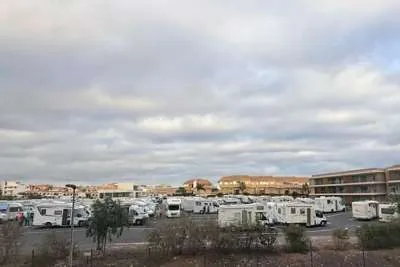The unsustainable reality of the housing crisis: wages have fallen by 6.8% while rents have risen by 40%
- 26-05-2025
- National
- Canarian Weekly
- Photo Credit: Stock image
A growing disparity between wages and monthly rents in the Canary Islands is intensifying economic pressure on residents, as a recent report highlights a 6.8% drop in average wages over the past three years, in contrast to a 40.2% increase in rents during the same period.
According to the 2024 report “Relationship Between Wages and Rental Housing”, published using data from the Fotocasa Property Index and employment platform InfoJobs, average rental costs in the Canary Islands rose by 5.6% in the last year alone. Meanwhile, the average advertised wage dropped by 0.9%.
In 2023, the average annual salary in the Canary Islands stood at €23,908 before deductions. By 2024, it had fallen to €23,686. Simultaneously, monthly rents climbed from €12.79 per square metre to €13.50, meaning an annual rent of approximately €12,960 for an 80-square-metre property.
This imbalance reflects a broader national trend where wages have failed to keep pace with housing costs. Over the last five years, advertised salaries across Spain have fallen by 19.8%, while rental prices have surged by 38.6%.
“The cost of renting has increased nearly four times more than salaries over the last three years,” said María Matos, Director of Research and Spokesperson for Fotocasa. “This disproportionate growth is eroding household finances. Renters are now spending 47% of their income on housing, far above the recommended affordability threshold of 30%.”
Matos attributes the rent hike to a “structural imbalance” between soaring demand and historically low supply, creating an increasingly strained market. She also pointed to precarious, unstable employment conditions as a compounding factor.
Despite signs of recovery toward the end of 2024, Mónica Pérez, Director of Communications and Research at InfoJobs, added that “inflation and declining purchasing power have continued to define the living conditions of Canary Islanders, especially as the rental market remains on an upward trajectory.”
While labour reforms have somewhat curtailed short-term contracts, seasonal work still plays a dominant role in the region’s job market, exacerbating employment instability.
As the cost-of-living crisis deepens across Spain, particularly in regions like the Canary Islands, the widening gap between incomes and housing costs continues to place immense strain on working households, calling for urgent policy responses and structural reforms.
Other articles that may interest you...
Trending
Most Read Articles
Featured Videos
TributoFest: Michael Buble promo 14.02.2026
- 30-01-2026
TEAs 2025 Highlights
- 17-11-2025


























































